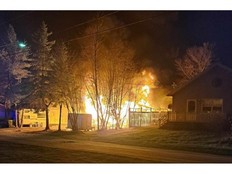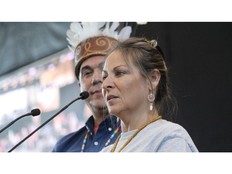Featured Letter: Better energy sources available than fracking

Article content
Higgs claims shale will reap “benefits” and solve the climate crisis. (Higgs pitches shale gas as better climate plan than carbon tax”) I wonder if our premier and his advisors have been doing their reading since they seem oblivious to shale gas’ disruptive influence on climate and society.
Shale gas transport has proven complicated and causes huge amounts of methane release. Higgs’s proposal to sell natural gas overseas would require liquefying and shipping across the world – two processes that release emissions. Methane is a greenhouse gas 80 times more potent than carbon dioxide. The release of this gas would not only perpetuate climate change, it would also exacerbate it.
Fracking fossil gas has been linked to environmental and social concerns, like induced seismicity, or anthropogenic earthquakes. Further, fracking also releases oil as a by-product. If we are looking to steer away from oil, why are we continuing to collect it?
While Higgs promises benefits from shale for Indigenous communities, we mustn’t forget the history of broken promises Indigenous communities have endured. Further, baiting marginalized communities with the promise of economic prosperity when they are struggling for access to basic services hardly seems fair.
Shale development will only bring more environmental calamities and injustices. It’s embarrassing that our premier still thinks shale is a viable solution when it releases potent emissions and would perturb Indigenous communities the most – the latter extremely unbecoming for our province in an era of reconciliation, might I add.
We need to invest in low-emitting technologies, like renewables. Better yet, find ways to reduce energy consumption by targeting wasted energy and offering incentives for reduction. I think we all need to do our reading – especially whoever is advising Higgs. If his advisors are having trouble with the jargon from the latest research, might I suggest the children’s book, We Are Water Protectors by Carole Lindstrom? It focuses on the effects of fossil energy projects on Indigenous communities and the environment. It’s full of illustrations and easily understood by the preschoolers I read it to.
Emma Fackenthall
CEDAR (Contesting Energy Discourses through Action Research)
St. Thomas University











Postmedia is committed to maintaining a lively but civil forum for discussion. Please keep comments relevant and respectful. Comments may take up to an hour to appear on the site. You will receive an email if there is a reply to your comment, an update to a thread you follow or if a user you follow comments. Visit our Community Guidelines for more information.